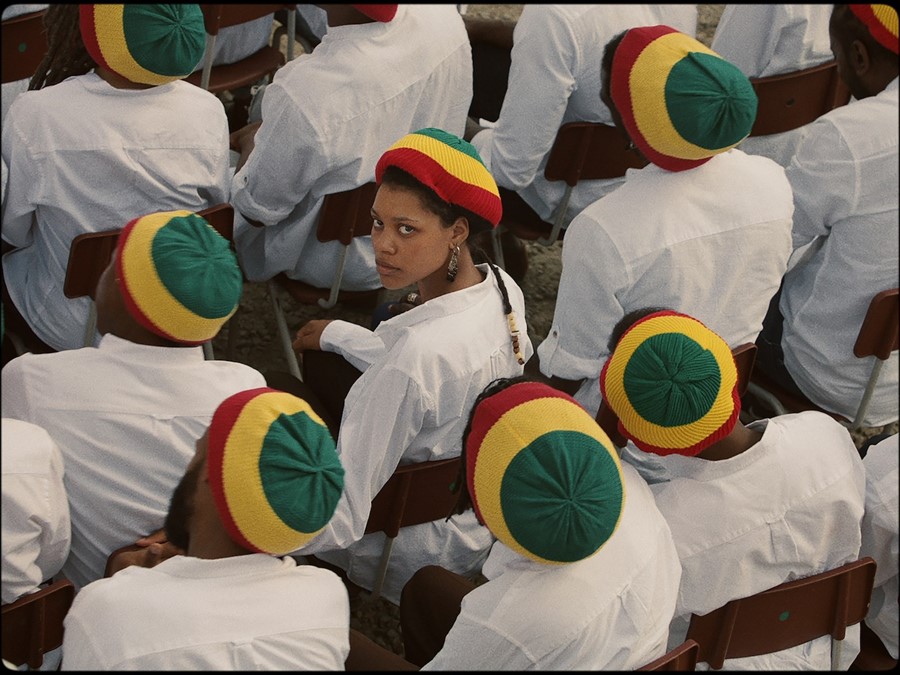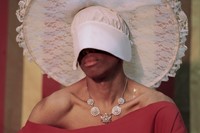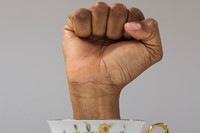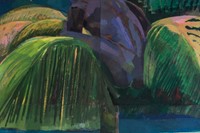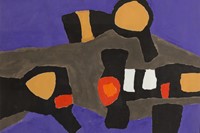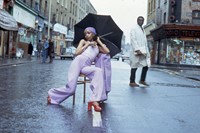A new cross-medium exhibition, Get Up, Stand Up Now, opens at Somerset House this week, representing 50 years of black creativity. Here, we talk to four of the artists involved about why they create art
How do artists address the black experience in their work? It is a huge question and one that is being given serious attention in a new cross-medium, cross-generational exhibition and programme, Get Up, Stand Up Now, opening at London’s Somerset House this week. Curated by artist Zak Ové, the show brings together 100 artists representing 50 years of black creativity. The list of people involved in art, photography, music, poetry, sound, textile, fashion and film is mind-blowing. Everyone from Martine Rose to David Hammons, Jenn Nkiru to Rashid Johnson, John Akomfrah to Gaika is involved, with a special soundtrack to the show commissioned from DJ Jillionaire. Many of the artists are focusing on the black British experience, referencing everything from Afrofuturism to the Windrush generation. Here, four of the artists discuss their feelings about representation, meaning, politics and media, and their own motivations in making creative work.
Gaika, musician
“I think about what it means to be me and what that means in the world. My work can be about displacement, or a feeling of statelessness, or search for identity in the future, because the past is so kind of fraught. I just say what’s in my head or in my heart. It is very much an expression and reflection of my own experience and what’s inside my mind. I went to art school. I studied design, so I was making real things before I was making music. These go hand in hand. I can’t separate them. It’s like hearing and seeing. I find it really weird when they’re not together in some way or another. I feel like that leaves a feeling of imbalance... Everything’s political, isn’t it? Any piece of work is a consideration of the world and how I move through it. I’m not huge on social engineering or making hammer-size statements, because I think that you kind of flatten the work if you do that. My work can be about a multitude of things at once. I think I’m about a multitude of things at once. I do like to hone in on what it means to be a human being within a non-natural environment, and that has inherently a political aspect because it’s about power and agency. The foundations are questions about power, even in one’s self. How does the way I think manifest in the actions that I take? What is authentic? What’s inauthentic?”
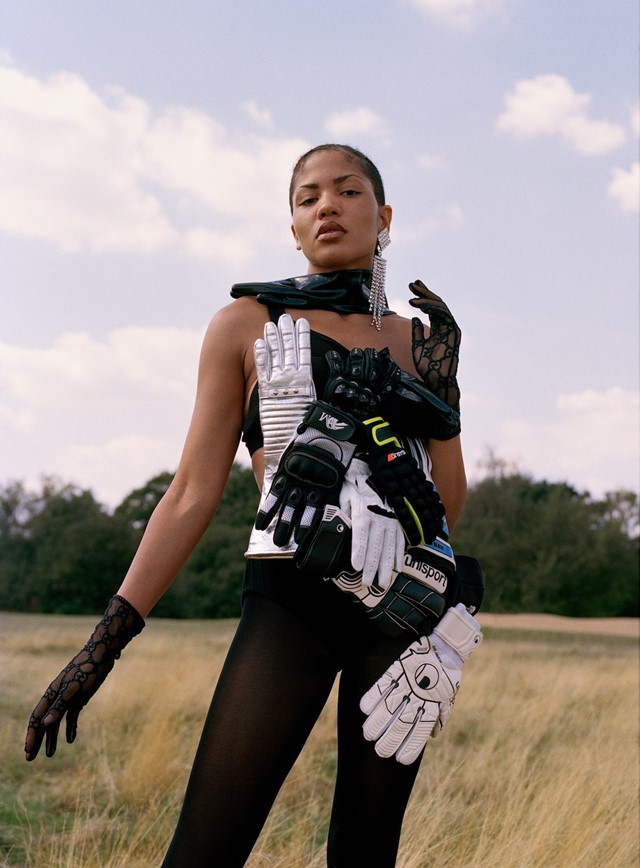
Ronan McKenzie, photographer
“A wider range of photographic representations of black people are becoming more readily available for research, historical and pure enjoyment purposes. Many photographs and artworks have existed for a long while, but it’s only now that we are able to find and see them in spaces and institutions that have never included black voices in this way before. Sometimes my projects are driven by personal experiences, feelings or connections that I’m trying to express, and other times my practice is completely literal and comes back down to the simple want to photograph a person or moment. For me, photography specifically is incredibly powerful. Someone who may be completely alien to the concepts or motivations behind the image, can understand it – sometimes subconsciously – and little by little that could change the way that they view other people, situations, and therefore change their lives. One artist who changed my practice and perspective is Kerry James Marshall. The way in which he captures such strong energy and presence in each portrait he creates honestly blows my mind. What also struck me instantly when I first came across his work is how he isn’t afraid to express tonality and depth in black skin, and is definitely not afraid of black. This fearlessness continues to inspire me to push the boundary of depth in skin, and I’m never scared of black skin being too dark within my work.”
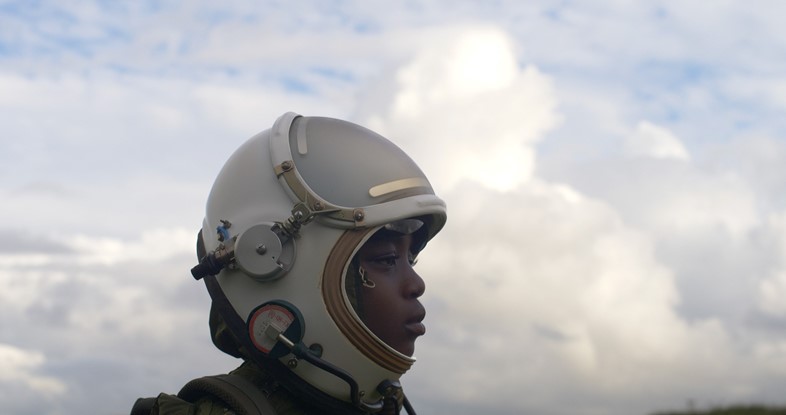
Larry Achiampong, artist and filmmaker
“The lived experience has always been important to me, representation – or the lack thereof in the art scene – is a thinking point that’s embedded with the way I make work and collaborate with others. I think it’s impossible to detach an artist’s experience of life from what they produce. I want to talk about things that are important, but rarely given the chance to be seen or heard; the bold to the subtle, the celebratory to the depressive moments... So I think about these things, where personal experience of blackness, class or gender are concerned and how others may comprehend. Without this, projects of mine like Relic Traveller or Sunday’s Best or Finding Fanon do not exist. It’s an honour to be included in a moment that will make history – by detailing generational experiences that are centred in a black British perspective and in one of UK’s most prestigious spaces. It’s more than a show – this is legacy.”
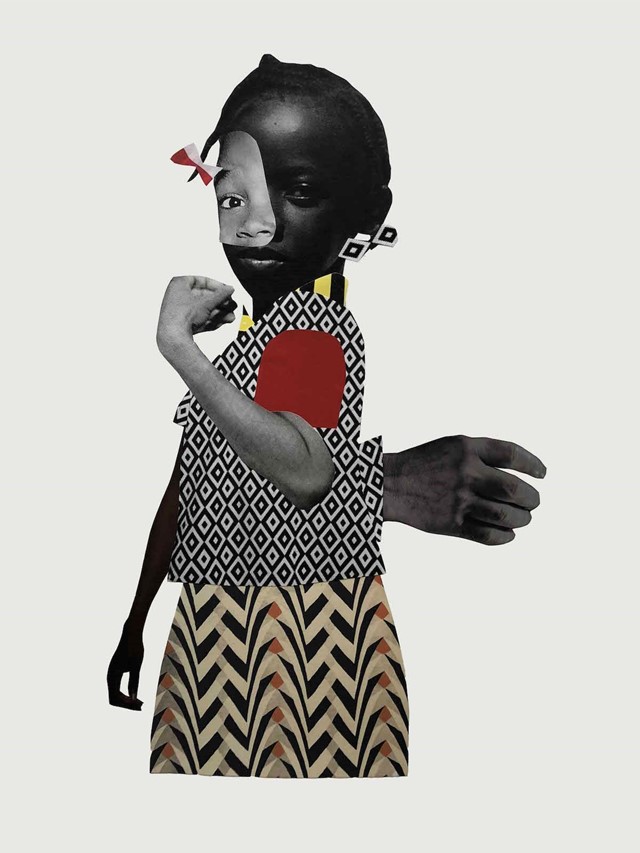
Deborah Roberts, artist
“With collage, I can create a more expansive and inclusive view of the black cultural experience. It allows me the freedom to exaggerate certain aspects of the face and body, creating new pathways to discuss issues of race, identity and class. From the beginning, I realised that the images of beauty I was seeing in history books and magazines looked nothing like the people in my community. There is a duality in what constitutes ideal beauty, and having images going forward that look like women of colour is vital to establishing our place in art history as the canon is changing. Most of your first independent decisions are made when you are young – about your clothes, hair and how you would like to fit in with your peers – so I thought it was important to start my language here about issues of beauty and identity.”
Get Up, Stand Up Now is at Somerset House, London, from June 12 – September 15, 2019.
